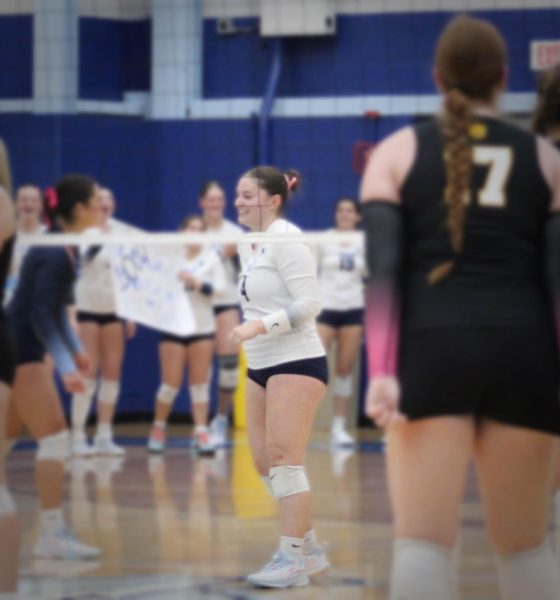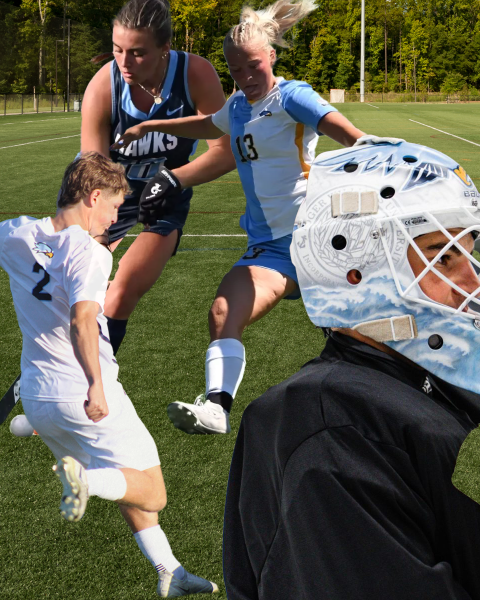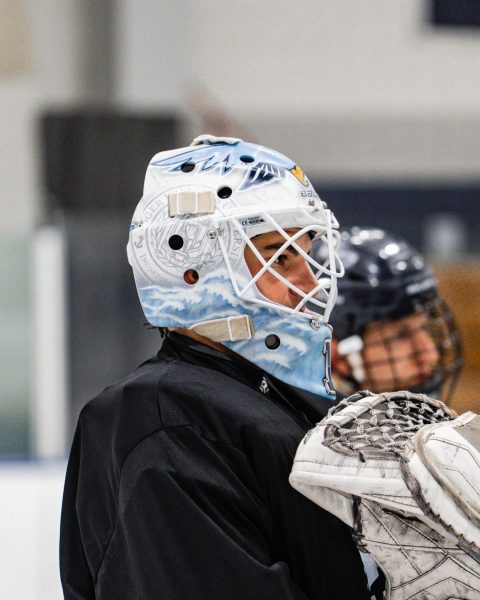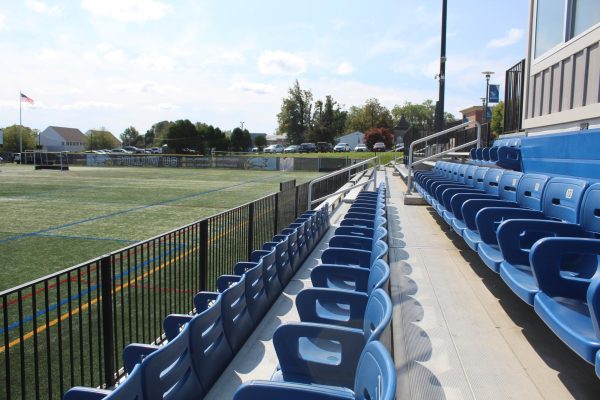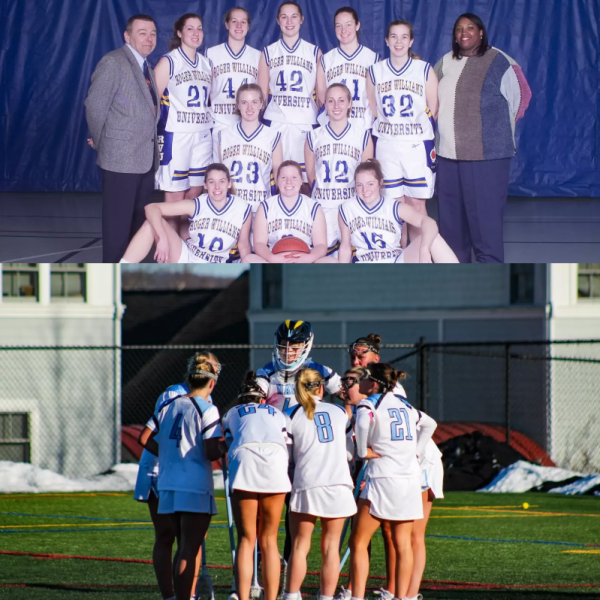We didn’t start the fire: Former RWC football player shares his experience with the team — and where it may have gone wrong.
The starting quarterback went down early in the game and left with a concussion. The team’s small roster didn’t have a backup.
Head Coach Richard “Foxy” Marshall put in the punter to take his place and try to squeeze out a win in a low-scoring game against Fitchburg State University in 1982. The Roger Williams College Seahawks ran the quarterback sneak again and again until they crossed the goal line. According to former offensive guard Doug Cyr, this is how the team won its first-ever game after going 0-32.
“In the fourth quarter, the game was close,” Cyr said. “And we really didn’t have a quarterback, he didn’t know how to call any of the plays, so we ran the quarterback sneak and did that six or seven times in a row and we scored the game-winning touchdown.”
Despite a 4-6 overall record in 1982, the team had a lot of promising players. Cyr said they acquired talent on the ‘82 and ’83 rosters from both in-state and out-of-state transfers. A recruit from the University of Cincinnati who broke his legs as a freshman transferred to RWC, ’83 captain Andy Vollaro came from Southern Connecticut State University and a few players came over from the University of Rhode Island, he said.
RWC played in a tough conference. Most teams in the New England Collegiate Football Conference went on to compete at a Division III level years later while the Seahawks had a tough time getting a record above .500.
But for the people on the team, it wasn’t just about playing the best football. For Cyr, even though he earned a spot on the NECFC All-Conference Second Team in 1983, his two years on the team were about having a good time and meeting people.
On the roster with Cyr, one guy about 10 years older than most of the other players, had created an academic course just for himself so he could play football at RWC. The team had a variety of personalities and was never boring for Cyr. And even with that group, he said they never did anything to warrant accusations of starting a fire.
“There were no negatives. The football team never got in trouble,” Cyr said. “There were no problems.”
Cyr now works at the University of North Carolina–Chapel Hill as a professor of cell biology and physiology. The team ending didn’t affect him while he was in college. But rumors of a fire, even thirty years later, can downplay the work that he and his other teammates tried to do for the school.
Cyr said that he never felt there was support from the administration. It seemed that they had no long-term plan in mind for the team. In the March 22,1979 edition of the school newspaper, an article ran about the team starting in the fall of that year. It stated that the original president of the football club, Jim DePalma, had hopes that the team would spread the university’s name. He also wanted the club to attract prospects to play football, which would have increased the amount of applications the school would see, leading to the acceptance of students with higher grade point averages.
It wasn’t a bad plan. And for a few years, it seemed like things may actually work out.
By the time the team became a club sport, not just a club, there was a large enough roster that this plan might have actually worked. But after the dedicated players graduated and Joseph Almeida went 0-8 in his third year of coaching, the school promoted Moe Chantre to head coach in 1986. That year, the team was nearing its end and the plan had fallen short. But had the university gave the team the belief that they cared about the future of the program, things might have been different.
“Usually someone who’s in a leadership position has an idea,” Cyr said. “And then if that person leaves, the idea leaves with them.”
Cyr mentioned that Foxy Marshall had a long-term plan for the team, even purchasing a used set of bleachers that the team set up for the fans one summer day after practice. As Marshall began to voice his ideas for the team as an administrator and put them in the direction he wanted, former Athletic Director Hector Massa told The Providence Journal that Marshall was resigning before the ’83 season. The resignation was said to come from personal reasons, but that may have just been a cover for the school pushing him away.![]()
Marshall’s daughter, Cheryl DelSanto, said that if the school wanted a football program, it would still be here. She mentioned that her father was passionate about his players and the game of football, but Marshall had a plan that didn’t match what the school wanted. DelSanto said that her father’s last year at Roger Williams was tough.
“My father always put his heart and soul into everything he did, especially when it came to football, friends and family,” DelSanto said in an email to The Hawks’ Herald.
Following the resignation, Marshall received a coaching opportunity at URI that he took. DelSanto said he was excited and likely relieved to go there.
Had Marshall been kept around with time to work with the team and put his ideas to work, perhaps Roger Williams would have had a program for longer. Maybe it would still be around. But Marshall’s death in 1995 means we won’t ever get to know what he might have had planned for RWC football.

